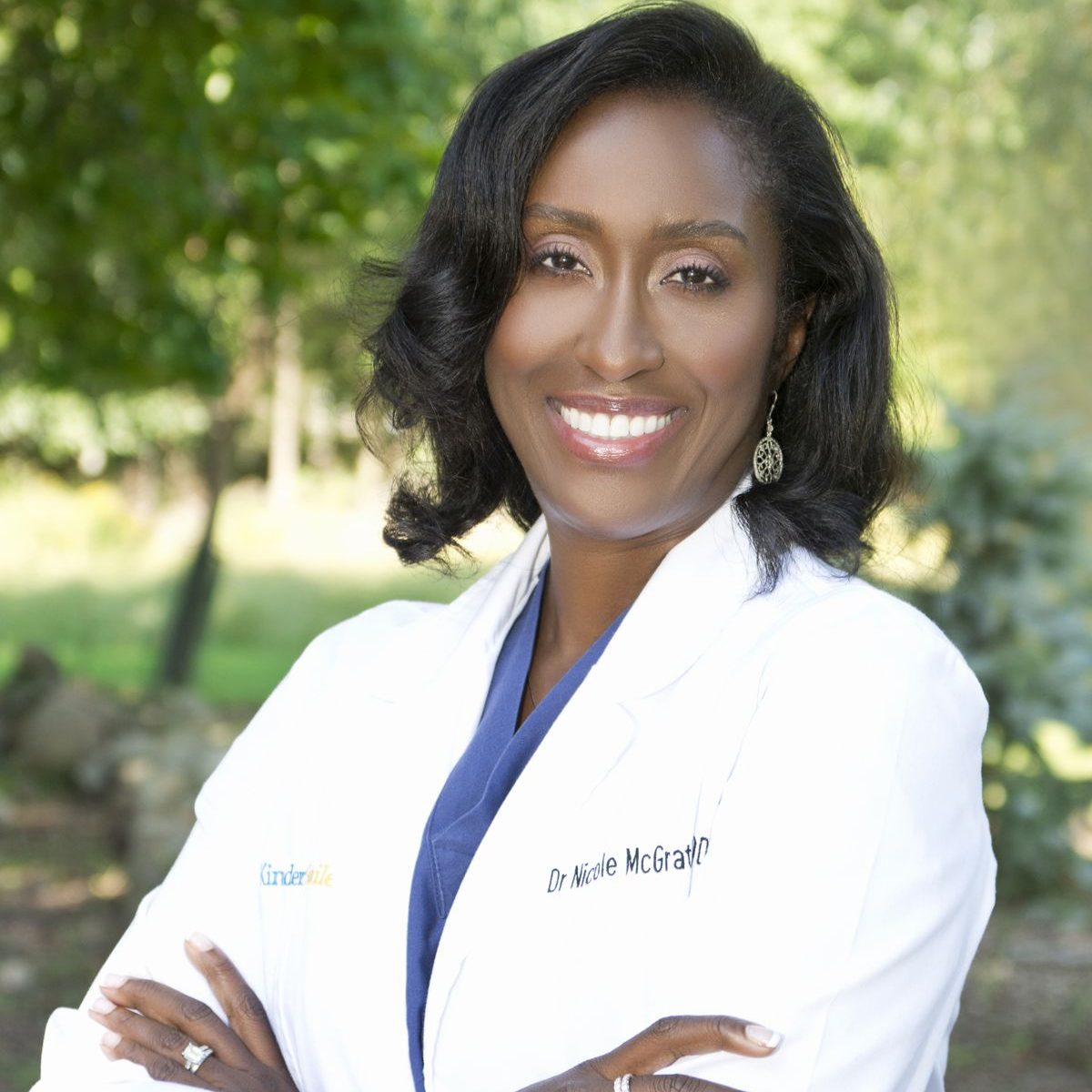👋 Welcome to Starting Early. Every other week, we spotlight new reports, useful news, engaging interviews with people doing important work in the field, and interesting takes on issues that matter.
As 2021 wraps up, we’re excited to recognize 4 special champions defined by their creativity, resilience, and optimism in serving their communities this year. Our honorees are creative problem solvers:
- Bringing high-quality early childhood education and wraparound services to families struggling during the pandemic
- Offering first-time dental care to families
- Training bilingual doulas to provide comprehensive support to new moms
- Transforming healthcare systems to be more patient-centered and responsive to pregnant women
Additionally, we say goodbye to our philanthropic peer, The Nicholson Foundation, as they close operations after 20 years and $150 million in grantmaking toward addressing systemic shortcomings in social services, healthcare, early childhood programs, and more. We thank Nicholson for their shared commitment and mentorship over the years and know their legacy lives on through the many lives improved through their initiatives detailed in their new book, Changing Systems, Changing Lives: Reflecting on 20 Years. 🎉
We’re proud to use this space to show the many ways people step up, work together, and make life better for those they serve.
Read on and click the links to go deeper.
1. Contributing to a thousand smiles

Of the many ways to support child wellbeing, dental care might not be the first thing that comes to mind. But, a shortage of providers and inadequate insurance coverage leave many children and adults without dental services and that hurts overall health and quality of life. Poor oral health is linked to a number of chronic conditions, including cardiovascular and pulmonary disease.
KinderSmile Foundation was founded in 2007 to provide oral healthcare and wraparound services to people who struggle to make ends meet. This year, KinderSmile served nearly 1,000 uninsured patients at their facilities in Bloomfield, Newark, and Trenton.
Spotlighting the issue: Oral health is especially important for pregnant women. Poor oral health in pregnancy can contribute to low-birthweight infants and premature birth. Through its Perinatal Health and Wellness Program, KinderSmile provided about 75 pregnant women and new mothers with personal, culturally-sensitive information on maternal oral health and its impact on their babies.
Our community hero: Dr. Nicole McGrath-Barnes, founder and CEO of KinderSmile Foundation and a Fellow of the American College of Dentists, is a self-described community service dentist who’s provided oral healthcare and related services to families in need for years.
“About 15 years into my career as a private-practice dentist, I felt like there was a void,” she says. “I decided to venture into the area of giving back to my community in Montclair and become a program dentist for the local Head Start. I was always very much a part of my own community, especially growing up in Brooklyn.”
Serving the Trenton community: KinderSmile Dental Home Trenton opened in October 2020. “The facility is well managed, very professional, very neat and clean,” Dr. McGrath-Barnes shares. “When uninsured and underinsured people walk in, they literally have to ask, ‘Am I in the right place?’ People from marginalized communities never walk into a place where they’re respected — not just a number. I’ve taken a lot of private-practice dentistry philosophy and implemented it in marginalized communities, so our families — our patients — can feel like they matter.”
To offer your support, make a donation to KinderSmile Foundation! 😀
2. Wrapping children in love and support
When asked how it feels to be connected to someone close, Summit participants answered intuitively about what it looks like and feels like, but there’s still a lot to learn about emotional connection.
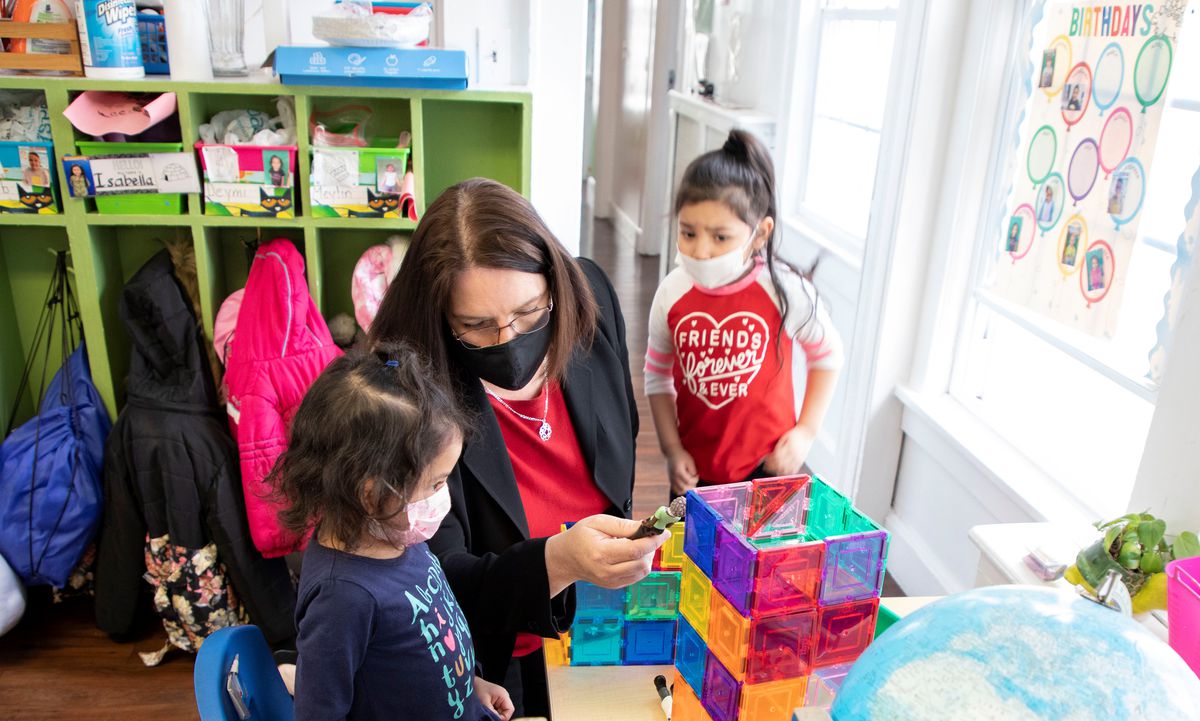
Early childhood care and early education programs improve children’s future academic achievement and life outcomes. Unfortunately, quality childcare and early education programs fall outside the financial reach of many New Jersey families.
A 92-year-old institution, the Princeton Nursery School (PNS), works hard to make quality services available to all families, regardless of financial resources, through sliding-scale tuition based on household income and family size. PNS offers preschool programing and childcare to about 48 children aged 2.5 to 5, mostly from families that otherwise couldn’t afford it.
Our community hero: Rose Wong, head of the Princeton Nursery School, has overseen daily operation of the school for 5 years, making sure PNS families get preschool education, nutritious food, and support services. During the early months of the lockdown, Rose drove food and supplies to PNS families most in need, checking on them frequently. For her heart-felt contributions and service, Rose recently received the inaugural Champions for Early Educators Director-of-the -Year Award from the New Jersey Association for the Education of Young Children.
“I learned very quickly the importance of early childhood programming and establishing a foundation for a child’s love of learning,” Rose tells us. “It’s really important to make sure you not only have the best teachers, but the best environment for children in their first foray into education. The need for partnerships with families at that age is critical. To see the progress the children make in the 2-to-3 years they’re here with us, you know the school had something to do with that.”
Building a foundation of resources: From hunger prevention to health and wellness initiatives, PNS meets families’ needs. “We have these things called ‘Bubbles and Brushes Bags,’ children’s personal-hygiene items that we distribute to the families,” Rose says. “As a result of the pandemic, we started handing out laundry and cleaning supplies. We were able to have a social worker on staff, who was a critical advocate for the families. I started the ‘Wild About Reading’ program, where every month the children get a brand-new book, chosen by their teachers, that they get to keep, and we share tips with the parents about how to incorporate literacy at the home.”
Community support: To offer holistic services to PNS students and families, Rose catalyzes a hub of support from community partners and organizations. “It does take a village,” she says. “Because we’re so small, we rely on our various friends and partners in the community to be able to provide the true breadth of the programs and resources we offer. With the pandemic, it was really an example of nonprofits supporting other nonprofits. We came together as a community.”
To offer your support, donate to the Princeton Nursery School or purchase an item from their Amazon wish list!
3. A community doula saving lives
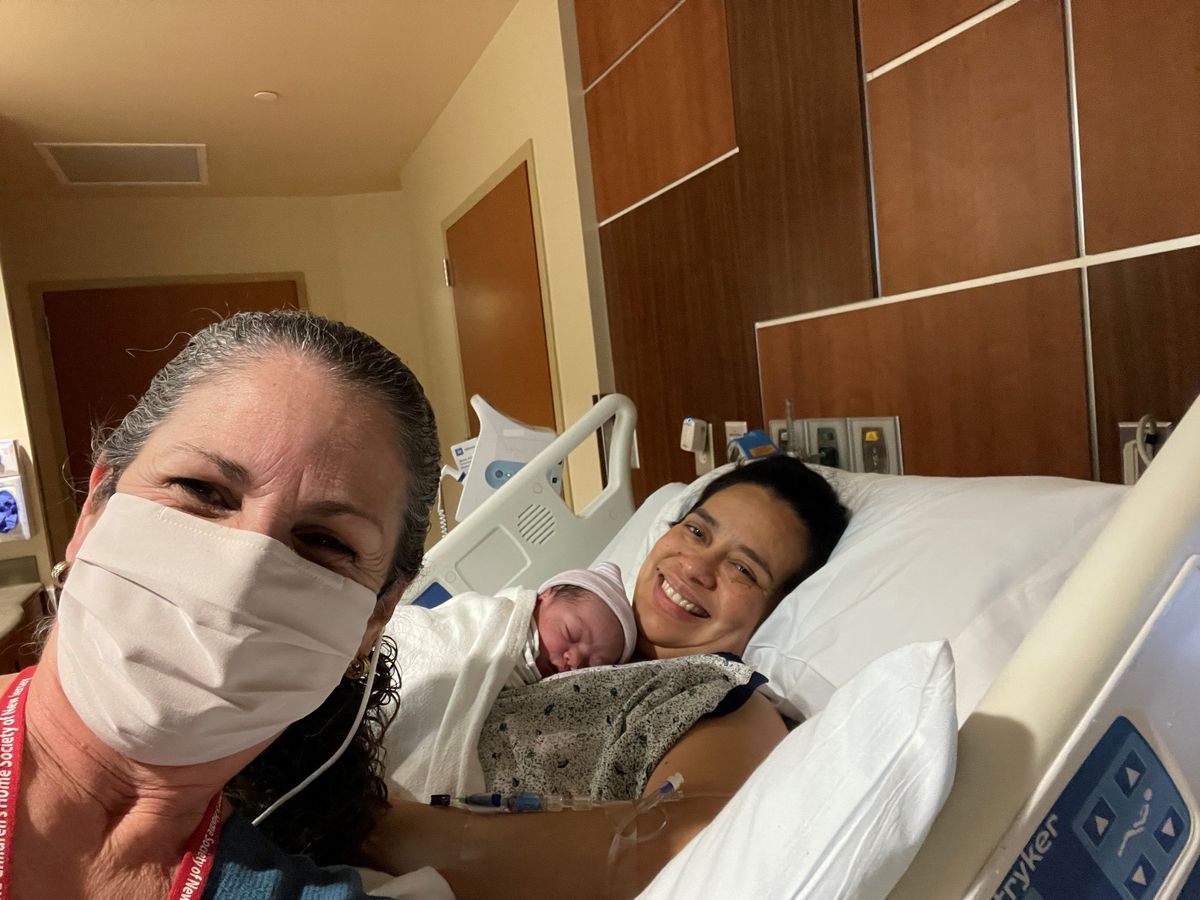
AMAR Community Doulas, launched by the Children’s Home Society of New Jersey (CHSofNJ) in 2019, recently served its 88th family! AMAR trains and employs local Spanish-speaking women to provide free, community-based doula services to Hispanic women and families in Trenton.
The word “doula” comes from the ancient Greek word for “a woman who serves” and now refers to a trained and experienced professional who provides continuous physical, emotional, and informational support to a mother before, during, and just after birth.
Why it matters: Community doulas improve maternal and child health outcomes, and the AMAR Community Doulas are no exception. Over the past 2 years, AMAR doulas have contributed to:
- Increased full-term births
- Increased full-birthweight births
- Increased breastfeeding-initiation rates
- Decreased C-section rates
Our community hero: A certified Labor Doula and Childbirth Educator, Teresita Carrasquillo has long been interested in serving the needs of her community. After years of volunteering with CHSofNJ as a childbirth educator and doula, Teresita became the AMAR Doula Supervisor and lead trainer in 2019. She spoke with us about the important role the AMAR Community Doulas play in improving maternal and child health in Trenton.
“We are community-based doulas and we are from the communities we serve,” she says. “We have a connection with our clients. We’re a part of them. We know how they feel. We know their language. We know all the struggles they have to live here in a place far away from their families.”
The power of support: A single mother who she supported through a traumatic first birth asked Teresita to be her doula for a second birth. The mother was afraid and in desperate need of support. Teresita notes, “That was a challenge to help her and make her believe in herself. It was my voice all the time saying, ‘You can do this! You can do this! I’m going to be with you. You can do this.’ I know that having a doula — someone that believes you can do it — makes a difference.”
Training new community doulas: “My goal is to transmit my passion to them, so they feel the same way,” Teresita says. “Doing this job, it has to come from your heart. You have to be available 24/7. That’s very hard, but it’s so rewarding when a family thanks you because they didn’t have anyone to help them through this.”
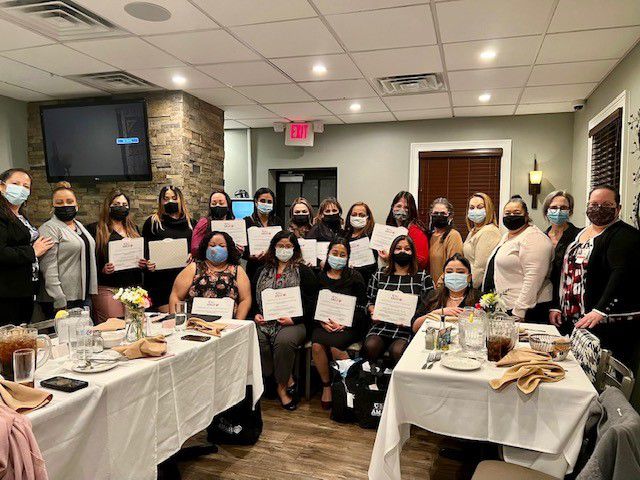
By supporting Spanish-speaking women, AMAR guides families through challenges posed by a language barrier, such as translating in the hospital, helping make appointments, and connecting families to resources.
To offer your support to AMAR Community Doulas, consider donating or volunteering with Children’s Home Society of New Jersey!
4. Providing transformative support to new families
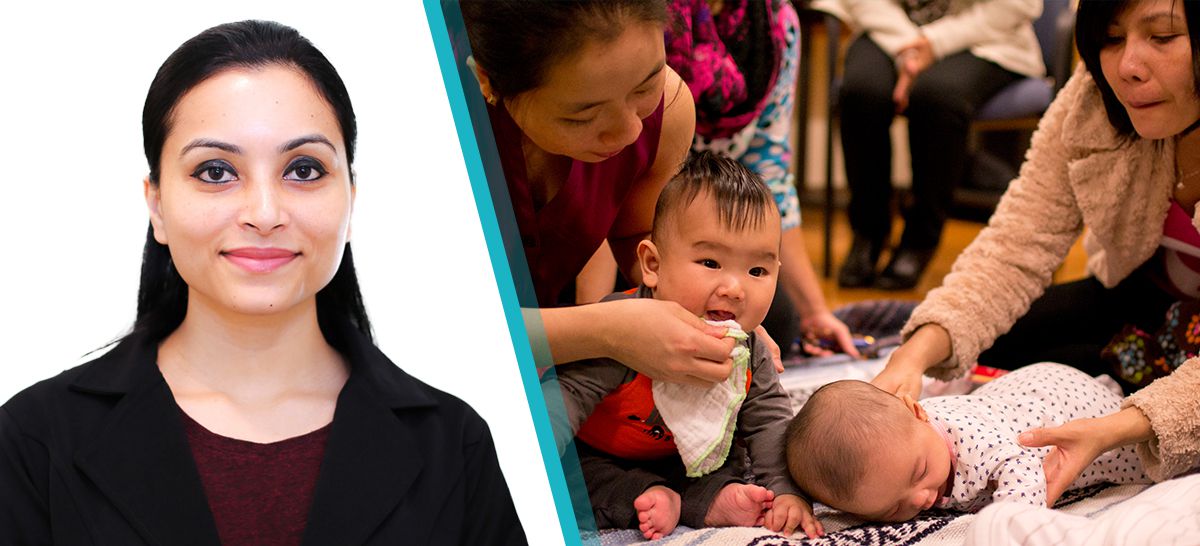
The sole Federally Qualified Health Center in Mercer County, Henry J. Austin Health Center provides a range of much-needed services, including behavioral healthcare, dental care, and their Centering Families Program.
Based on the CenteringParenting program, Henry J. Austin’s Centering Families Program offers relationship-based, group care that brings together 5 to 6 mothers with their babies, a clinician, and a Centering Families coordinator. A typical session begins with individual child health assessments, immunizations, and screenings followed by group discussions and interactive activities on topics such as safe sleep, nutrition, and maternal mental health.
By the numbers: The CenteringParenting model incorporates peer learning, community building, and social support to improve outcomes for moms, babies, and families. Henry J. Austin has served 67 families through their Centering program and contributed to:
- 100% of developmental screens completed during well-child visits
- 92.3% of mothers screened for postpartum depression by 6 months
- 73.1% of mothers breastfeeding at 12 months
Our community hero: As Programs and Research Coordinator and Centering Coordinator at Henry J. Austin, Preeti Bhandari helps facilitate group sessions and works to create a safe environment for Centering mothers to share their experiences and ask questions. Before immigrating to the US, Preeti previously worked as a doctor focused on maternal and child health in Nepal. Preeti sat down with us to discuss why Centering’s unique model is so impactful to the lives of participating families.
“You come together as a group and hear the mothers’ voices, their practices, their beliefs,” she says. “Based on what they share, you’re able to guide them. You actually get to hear their voices, their problems. It’s not just about their health. It’s about their family conditions. Here in the group, you’re basically taking care of the moms, the babies, and the families as a whole.”
Integrated care: “We do a team-based Centering,” Preeti explains. “You don’t just have a facilitator and co-facilitator, you have a pediatric team that consists of a provider, a behavioral health counselor, a nurse. The group knows that, ‘This is my Centering team.’ The mothers feel comfortable to share their stories and they know they have support.”
Emphasizing self-care: “In the pandemic, there was this activity where we asked, ‘What do you do? How often do you do it? Is it just you?’” Preeti shares. “For them, the norm was just being alone with the baby. They didn’t even consider alone time where they could rest — where they could just go out for a walk or let the baby be with somebody. Getting that message across to the moms was difficult, especially for first-time moms. They had to understand the importance of their health, their needs. They don’t need to feel guilty.”
To offer your support to Henry J. Austin Health Center, donate or volunteer today!

